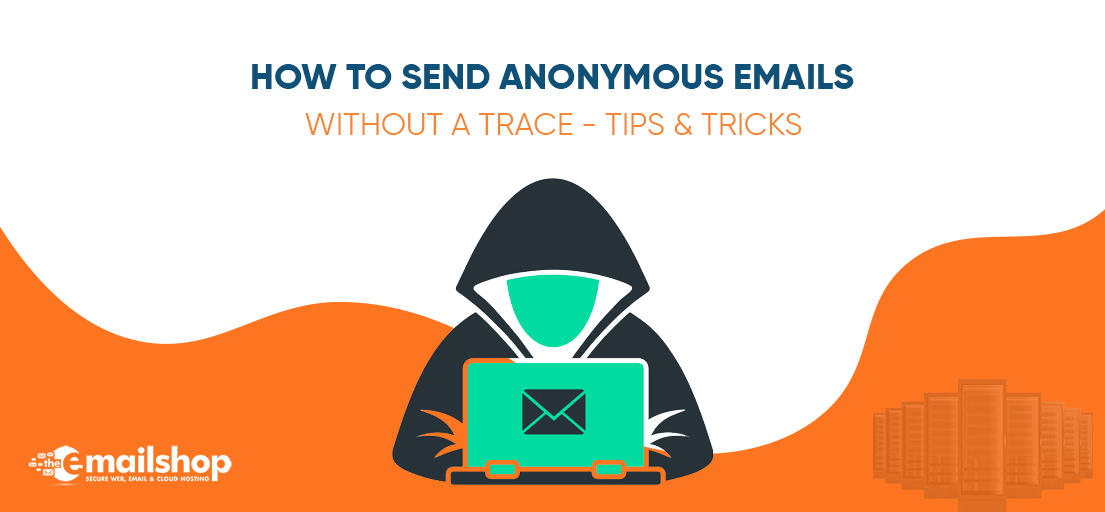There are many anonymous uses for email. It’s crucial to secure it whether you’re verifying an account, organizing your finances, or discussing trade secrets. Two-way communication has its risks, though. This is the reason why anonymous emails are crucial. It can assist in safeguarding your data both during transmission and reception. So let’s discuss various safe email services in this article that you may use for either personal or business purposes.
What is An Anonymous Email?
An email is regarded as anonymous if the sender’s identity is hidden. It contains no personal or technical information that may be used to determine who sent the email. The primary goals of such an email are confidentiality and privacy protection for the sender. However, no email is private.
How do Anonymous Emails work?
An email can be made anonymous by hiding personally identifiable information and using secure email services. A few instances of personal information that could be used against you are your name, the details you provided to open an email account, the email address itself, and your IP address. The IP address is frequently hidden and not recorded by an anonymous email provider. These services usually use end-to-end encryption to protect the email content, ensuring that only the intended receiver may view the encrypted message.
How to Send An Anonymous Email?
There are several techniques to make sure your email is anonymous and doesn’t include any identifiable information:
- Make a fresh, private email account.
- Pick a fictitious phone number.
- Make use of a burner email.
- Use the Tor browser or a VPN to conceal your IP address.
Tips Anonymous Emails
-
Using Anonymous Email Services
You can send emails without disclosing who you are by using services like ProtonMail or Tutanota. These services place a high value on user privacy and encryption, so your messages stay private. You may sign up and communicate securely without revealing any personal information, keeping your identity anonymous.
-
Employing VPN Services
By hiding your IP address, VPN services make it more difficult for receivers to identify you through emails. VPNs give you an additional degree of protection and anonymity for all of your online activities, including sending emails anonymously, by rerouting your internet connection through servers located in other areas.
-
Avoiding Personal Information
When sending emails, avoid including any personal information that can identify you to keep your anonymity. This entails keeping your name, address, phone number, and any other identifying information private from the email’s metadata and content. Maintaining a generic and impersonal communication style improves your anonymity.
-
Using Tor Browser
It is very difficult to track down your online activity because of the Tor network, which sends your internet data across several encrypted nodes. You can send emails anonymously and without revealing your identity by logging into your account using the Tor browser. Your conversations will be protected by increased privacy and anonymity as a result.
-
Creating Disposable Email Addresses
To facilitate anonymous communication, think about generating one-time email addresses with temporary email providers. Emails can be sent using temporary email accounts that expire after a set amount of time thanks to services like Guerrilla Mail and Temp Mail, which shield your identity from prying eyes. This strategy reduces the possibility of being identified as the culprit.
-
Exercising Caution with Attachments
Use caution when sending attachments in anonymous emails as they may contain metadata that exposes your identity. Do not attach files or papers that might provide identifying information about you or your family. To protect your anonymity, utilize programs to strip metadata from attachments before sending them over the internet.
Tricks Anonymous Emails
-
Spoofing Email Headers
Spoofing the email headers is one way to send anonymous emails. To hide your real identity and give the impression that the email came from a different source, entails changing the email header information. You can hide your identity and evade detection by changing the “From” address and other header data.
-
Using Public Wi-Fi Networks
Using public Wi-Fi networks to send anonymous emails adds yet another level of anonymity. You can hide your IP address and location when using a public Wi-Fi network, which makes it more difficult to determine where the email originated. But exercise caution when using public Wi-Fi networks due to possible security hazards.
-
Employing Email Forwarding Services
Using email forwarding services to make your emails anonymous is another approach. By serving as middlemen, these services route your messages to the correct people without disclosing who you are. You may stay anonymous and not leave a trail of your original email address by using these services.
-
Using Proxies
By acting as a bridge between your device and the internet, proxies let you send emails without being identified. You can conceal your IP address and location by using proxy servers to route your email traffic, which makes it more challenging to identify the email’s source. However, to preserve security and anonymity, make sure you utilize reliable proxies.
-
Encrypting Email Content
An additional degree of protection and anonymity is added when the content of your emails is encrypted. Encrypted email platforms and PGP (Pretty Good Privacy) are examples of technologies or services that allow you to guarantee that only the intended receiver may access and decrypt the message. This keeps prying eyes away from your identity and private information.
-
Utilizing Anonymizing Email Services
Advanced features are provided by email anonymizing providers to improve email sender anonymity. Features like message encryption, random email addresses, and the capacity to send emails covertly without disclosing your IP address are examples of what these services might offer. You may improve your anonymity and keep your identity out of your emails by using such services.
-
Using Disposable Devices or Accounts
When sending anonymous emails, think about using disposable devices or email accounts for increased anonymity. Disposable electronics can be used once and thrown away, making it challenging to find you again. Examples of these gadgets include prepaid cell phones and temporary email addresses. This method improves your anonymity and reduces the chance of being discovered while sending emails covertly.
Read More: The Benefits of Email Hosting and Security with an Email Service Provider
Final Words
Utilizing the appropriate tools and adhering to certain principles will enable you to send anonymous emails without leaving a trace. You should utilize trustworthy anonymous email providers, utilize VPNs for additional security, be careful with the content of emails to avoid disclosing personal information, and think about the ethical and legal ramifications of communicating anonymously if you want to ensure secure communication while maintaining your privacy. To maximize the benefits of anonymous emailing and safeguard your privacy while remaining anonymous online, responsible use and proper digital hygiene are crucial.
At Email Shop, we’re working to give everyone privacy and security online. So whether you need anonymity or just want an email that respects your privacy(new window), join us and stay secure!
For Discount and Offers, Visit our Official Twitter Page









